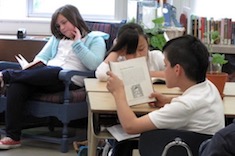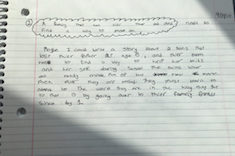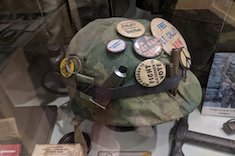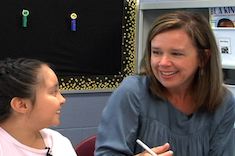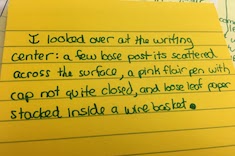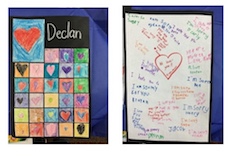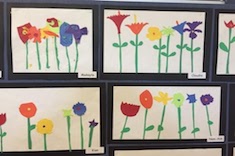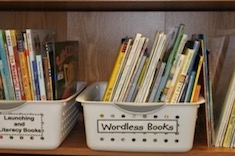Articles
Here is where you’ll find all the latest print features from our contributors. If you’d like to browse specifically by grade level, topic, or contributor, you can use the links in the right sidebar.
Latest Content
Varying Workshop Structures to Meet Student Needs
Tara Barnett and Kate Mills give guidance and support for varying the structures and routines in literacy workshops.
Picture Books for Persona Poems
Gretchen Schroeder uses picture books to help her high school students understand and write persona poems.
Call Me by My Name
Suzy Kaback reminds us that the language we use to talk about challenging students shapes our perceptions of them. That’s why she has moved to calling students “small teachers.”
Sparking Ideas for Realistic Fiction
Tara Barnett and Kate Mills explain how they use examples from YA authors of how to mine everyday life for powerful ideas. They then help students move from ideas to blurbs as they start their realistic fiction drafts.
Building Interest Through Artifacts
Mark Levine has many students who haven’t traveled much more than 100 miles from home. He makes history come to life for them by bringing artifacts into his middle school classroom.
Historical Fiction Background Folders
Tara Smith finds that students in book clubs reading historical fiction are often confused because they lack background knowledge. Her solution is to create background folders that include key documents to support the history in the texts.
Out of Sight, Out of Mind: Accountability for Young Writers
Stella Villalba teaches young writers about writer’s craft. So how come evidence of learning from the minilessons isn’t showing up when she confers with her students? She decides to develop a plan to help students link craft lessons with their writing.
Balancing Conferences and Small Groups
Balancing small groups and conferences is essential for transferring learning from lessons and units, and it’s one of the trickiest tasks for teachers. Dana Murphy explains how she works toward balance in her classroom, weighing everything from the timeline of the unit to the intensity of the minilesson.
Navigating the Interpretation Process
Tammy Mulligan shares how she introduces students to the process of interpreting literature at different grade and developmental levels.
Student Ownership of Literary Analysis
Christy Rush-Levine shares the strategies she uses to help her middle school students take ownership of their literary analysis essays.
Getting Students in the Learning Zone
The zone of proximal development (or ZPD) is the sweet spot for learning—just enough challenge with just enough support to take on the challenge. Melanie Meehan shares how teachers can create scaffolds in their classrooms that help students find their own ZPDs.
Pausing for Renewal Throughout the Day
Stella Villalba shares three strategies teachers and literacy coaches can use to pause, re-center, and renew themselves throughout busy, stressful days in schools.
Dealing with Lists in Style
Polysyndeton, asyndeton—if you are a writer and a word nerd, you will love Gretchen Schroeder’s suggestions for helping your students create lists with style in their writing.
Studying Craft and Punctuation in Sentences from Read Alouds
Tara Barnett and Kate Mills share the power of teaching writer’s craft in bite-sized chunks, through careful study of mentor sentences in read alouds.
Keeping Parent Communication Open in Middle School
Tara Barnett and Kate Mills find that they have to change the way they think about connecting with families once students reach middle school.
Everyday Celebrations and Traditions
Bitsy Parks shares how she builds a learning community with displays and traditions that celebrate families.
I’m Done! What’s Next?
Tammy Mulligan contemplates the unique pleasure of finishing a piece of writing, as well as the challenges of helping students figure out what’s next.
Making Our Writing Public
Jennifer Allen shares a project student writers complete with support from a local college to make writing public and widen the net for feedback.
Observing Skilled Readers
Mark Levine wonders why his most some of his most skilled readers take the most time to get through texts. So he asks them, and gets some fascinating answers he uses to assist struggling students.
Reassuring Worried Children with Picture Books
Mandy Robek learns a lot about worry from her daughter, and at the same time discovers a treasure trove of children’s books to help students overcome worries.
Making Paper Packets for Distance Learning
Tara Barnett and Kate Mills write about the challenge of creating meaningful print-based packages of materials for students who don’t have internet access for remote learning.
The Power of Teaching Journals
Bitsy Parks finds inspiration for her teaching journal in the work of Debbie Miller. She explains how she uses her journal daily, and how it has evolved over time.
Journals or Writers’ Notebooks?
Journals? Writers’ Notebooks? Shari Frost shares tips and strategies for explaining the difference between the two for teachers, as well as professional development resources.
Remote Coaching Videos
We know our subscribers who are literacy coaches have a pressing need for resources to use in remote coaching contexts, as well as in college courses that are now being moved to online platforms. During the COVID-19 crisis, we are opening up more videos for our members to use in remote coaching.
Planting Rainbows
Bitsy Parks shares how she adapts her favorite first-grade spring literacy project for remote learning.
Letting Go in the Remote Learning World
Jen Schwanke, like many of us, is scrambling to deal with issues cropping up in the new world we all face of remote instruction. She shares some of the most common problems, and how teachers might deal with them.
Book Selection for Early and Emergent Readers
Some emergent readers happily browse for books and explore them independently. For others, it’s a struggle. Cathy Mere shares her favorite strategies for helping all readers get comfortable with selecting books on their own.
The Good Part of Tech
Bitsy Parks shares how she integrates technology into her workshops with first graders in a way that is simple, effective, and natural.
Interpretation and Comprehension
Teaching comprehension skills can be a complex and overwhelming task. Tammy Mulligan shares a process for expanding and deepening student interpretations of text.
Building Primary Writing Skills Through Character Study
Jennifer Allen upends the normal routines in a primary writing workshop to introduce students to a compelling character.
Browse Content By
Type
Category
- Assessment Tools
- Big Fresh Archives
- Booklists
- Choice Numeracy
- Classroom Design
- Common Core
- Community Building
- Conferring
- Content Literacy
- Digital Literacy
- English Language Learners
- Equity
- Family Relations
- Free Samples
- Guiding Groups
- Leadership
- Literacy Coaches
- Mentor Texts
- Minilessons
- New Teacher Mentors
- Podcasts
- Poetry
- Quote Collections
- Reading Strategies
- Self Care
- Struggling and Striving Learners
- Talking and Listening
- Teacher Study Groups
- Teaching Reading
- Teaching Writing
- Word Study and Vocabulary
Author
- Melissa Quimby
- Nawal Qarooni
- Gwen Blumberg
- Julie Cox
- The Lead Learners
- Hannah Tills
- Josie Stewart
- Ruth Metcalfe
- Mallory Messenger
- Becca Burk
- Jodie Bailey
- Vivian Chen
- Mary Brower
- Tiffany Abbott Fuller
- Stephanie Affinito
- Ruth Ayres
- Leigh Anne Eck
- Heather Fisher
- Shari Frost
- Julie Johnson
- Suzy Kaback
- Gigi McAllister
- Shirl McPhillips
- Melanie Meehan
- Cathy Mere
- Debbie Miller
- Tara Barnett and Kate Mills
- Tammy Mulligan
- Dana Murphy
- Bitsy Parks
- David Pittman
- Brenda Power
- Heather Rader
- Matt Renwick
- Mandy Robek
- Christy Rush-Levine
- Gretchen Schroeder
- Jen Schwanke
- Brian Sepe
- Katherine Sokolowski
- Stella Villalba
- Jennifer Vincent
Grade Level
Choice Literacy Membership
Articles
Get full access to all Choice Literacy article content
Videos
Get full access to all Choice Literacy video content
Courses
Access Choice Literacy course curriculum and training

